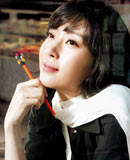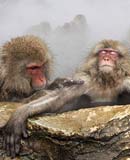不支持Flash
|
2009年考研英语新题型最新模拟题
Habits are a funny thing. We reach for them mindlessly, setting our brains on auto-pilot and relaxing into the unconscious comfort of familiar routine. “Not choice, but habit rules the unreflecting herd,” William Wordsworth said in the 19th century. In the ever-changing 21st century, even the word “habit” carries a negative connotation.
So it seems paradoxical to talk about habits in the same context as creativity and innovation. But brain researchers have discovered that when we consciously develop new habits, we can even create entirely new brain cells that can jump our trains of thought onto new, innovative tracks. 41_____________________________
All of us work through problems in ways of which we’re unaware, says Dawna Markova, author of “The Open Mind”. Researchers in the late 1960s discovered that humans are born with the capacity to approach challenges in four primary ways: analytically, procedurally, relationally (or collaboratively) and innovatively. 42________________________
The current emphasis on standardized testing highlights analysis and procedure, meaning that few of us inherently use our innovative and collaborative modes of thought. 43__________________ This emphasis clearly leads to ordinary performance. On the contrary, knowing what you’re good at and doing even more of it creates excellence.
44________________________ Figure out what has worked for you when you’ve learned in the past, and you can draw your own map for developing additional skills and behaviors for the future. Ms. Ryan says, “If you have a pathway to learning, use it because that’s going to be easier than creating an entirely new pathway in your brain.”
Ms. Ryan and Ms. Markova have found what they call three zones of existence: comfort, stretch and stress. Comfort is the realm of existing habit. Stress occurs when a challenge is so far beyond current experience as to be overwhelming. It’s that stretch zone in the middle — activities that feel a bit awkward and unfamiliar — where true change occurs.
Getting into the stretch zone is good for you, according to Ms. Ryan. It helps keep your brain healthy. It turns out that unless we continue to learn new things, which challenges our brains to create new pathways, they literally begin to weaken, which may result in brain diseases. She recommends practicing a technique called kaizen, which calls for tiny, continuous improvements.
45__________________________ That can be fatal in business, particularly for executives who surround themselves with like-thinkers. If seniority and promotion are based on similarity to those at the top, chances are strong that the company lacks intellectual diversity.
[A] This is where developing new habits comes in. If you’re an analytical or procedural thinker, you learn in different ways than someone who is inherently innovative or collaborative.
[B] Rather than dismissing ourselves as unchangeable creatures of habit, we can instead direct our own change by consciously developing new habits. In fact, the more new things we try — the more we step outside our comfort zone — the more inherently creative we become, both in the workplace and in our personal lives.
[C] After the confusion, the brain begins organizing the new input, ultimately creating new synaptic connections if the process is repeated enough.
[D] “This breaks the major rule in the American belief system — that anyone can do anything,” explains M. J. Ryan, author of the 2006 book “This Year I Will...”
[E] But if, during creation of that new habit, the “Great Decider” steps in to protest against taking the unfamiliar path, people may keep doing the same thing over and over again.
[F] At teenage years, however, the brain shuts down half of that capacity, preserving only those modes of thought that have seemed most valuable during the first decade or so of life.
[G] Simultaneously, take a look at how colleagues approach challenges, Ms. Markova suggests. We tend to believe that those who think the way we do are smarter than those who don’t.
特别说明:由于各方面情况的不断调整与变化,新浪网所提供的所有考试信息仅供参考,敬请考生以权威部门公布的正式信息为准。





